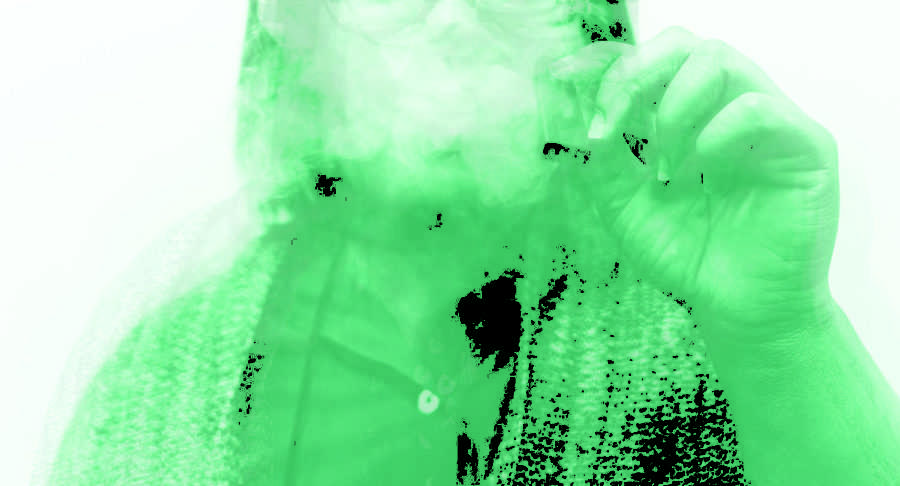- News
- News / Nation
- News / Politics And Administration
- News / Politics And Administration / Campus
- News / Politics And Administration / City
Discreet nicotine products like the Juul prevalent among students and young people
November 7, 2018
The Food and Drug Administration (FDA) released a statement saying that they intended to increase regulations on E-Cigarettes and other vapor products on Sept. 18, as schools across the country have had issues with students being introduced to nicotine, and those impacts have had some reach on the Ames community.
Within the last decade the availability and usage of these products has increased, in some cases, replacing traditional cigarettes for long-time smokers. In fact, the initial draw to vapor products was the idea that they could help smokers quit traditional cigarettes and ideally, all nicotine products entirely.
However, the reality of the situation is quite different, especially for teens and young adults. Garin Buttermore said, from the Iowa Department of Public Health, traditional cigarette usage has gone down and the usage of vapor products among teens and young adults has been steadily increasing.
This comes as no surprise, especially to members of the health community. Vapor products have been publicly marketed and culturally recommended as a safer way to consume nicotine. Paired with the variety of flavors that come with the Juul and other vapor products, these devices give off the illusion that they are not harmful to one’s health until the user is already addicted to the nicotine content.
The nicotine content of these vapor devices are a concern for some, especially to the younger demographics who may ignore the harmful effects these devices pose. One Juul pod contains roughly the same amount of nicotine as a pack of cigarettes. This can make addiction easy and it can go unnoticed by the user as the pods are marketed with appealing flavors.
However, according to the School, Community and Media Relations Director for Ames Community School District, Eric Smidt, this does not seem to be as much of a problem in the Ames Community. The policy for the district and the high school specifically bans the use of cigarettes and e-cigarettes.
The Thielen Student Health Center has seen an increase in students reporting they are using these products from their normal questioning during appointments. Laura Knowles, the clinical supervisor for nursing and patient services for Thielen Student Health Center, conferred with providers at Thielen to get their view on the growing usage of vaping products in college aged individuals.
“Providers have noted much more vaping with our college aged students also — and increased nicotine usage in this form,” according to Knowles in an email to the Daily.
Knowles also said there are concerns for the future of these users as there are other chemicals within the products which can have “lasting and unfortunate side effects” for these people which can be equal or worse than smoking.
“The studies are still being worked on — and we may not know much more until a few more years down the road when health issues start coming up for those who have been using these products for quite some time,” according to Knowles in an email.
According to the National College Health Assessment for Iowa State, daily usage of cigarettes has dropped from 11.1 percent of students in 2010 to just 1.5 percent in 2017.
However, their numbers are not as clear for e-cigarettes because the NCHA did not include questions about them until the 2017 edition of the assessment. Despite this fact, in 2017 1.8 percent of students reported using e-cigarettes daily and 21.1 percent who reported vaping in the past 30 days. In comparison, 29 percent of students smoked cigarettes in the past 30 days in 2017.
Some on campus are looking to respond to this so-called epidemic. Student Government passed a resolution on cigarette usage on campus in October.
While the resolution focused primarily on the littering of cigarettes on the edges of campus, it did reaffirm the anti-smoking policies.
The resolution stated that it “recommends that Iowa State University, in conjunction with whatever law enforcement and/or other relevant disciplinary bodies necessary, take action to enforce university policy and state law…” Student Government also stated that it opposed “the use of cigarettes and e-cigarettes on campus.”
At the state level, the Attorney General’s office has been working with Juul through a variety of committees with former Attorney Generals and public health officials. The committees are finalizing their work but the communications director for the Attorney General’s office, Lynn Hicks, summarized their work in a phone call.
He said primarily they wanted “the FDA to know that these products should be kept as an alternative option for adults to use as a way to cut their use of traditional cigarettes.”
He also expressed that it was the goal of Attorney General Tom Miller to lower the adult smoking rate further.
The committee is not suggesting people take up vaping. “If you don’t smoke at all, don’t start vaping,” Hicks said.
According to a media release on Aug. 2 from the Attorney General, the adult smoking rate dropped from 16.8 percent to 13.9 percent within the past three years. The media release also stated Miller wanted to lower the adult smoking rate to below 10 percent by 2021.
In response to the use of e-cigarettes by younger demographics, Hicks stated the committee obviously wanted to keep these products out of the hands of people under the legal age to purchase.
This is in line with a media release from April 25 which explained the creation of this partnership with Juul Labs. In the release, Miller stated Juul sells “only to people age 21 or older… they don’t need sales to adolescents to succeed. Indeed, current youth use is far more harmful to Juul than the cash generated.”
While many states, counties and school districts have had a growing problem with use of vape products like Juuls, the school, Smidt said this does not seem to be as much of a problem in the Ames Community. The policy for the district and the high school specifically bans the use of cigarettes and e-cigarettes.
For many students, the design of a Juul makes it easier to conceal than other products, which is one reason it is popular among students.
Nicotine addiction and other smoking habits related to the usage of cigarettes, e-cigarettes, and smokeless tobacco are a serious health issue and should not be taken lightly.
If you are struggling with nicotine addiction or other related issues, these resources can help you. The Student Wellness Center has some tips to help you quit smoking. You could also contact the statewide helpline called Quitline Iowa at 1-800-QUIT-NOW or 1-800-784-8669. You could also visit their website.







